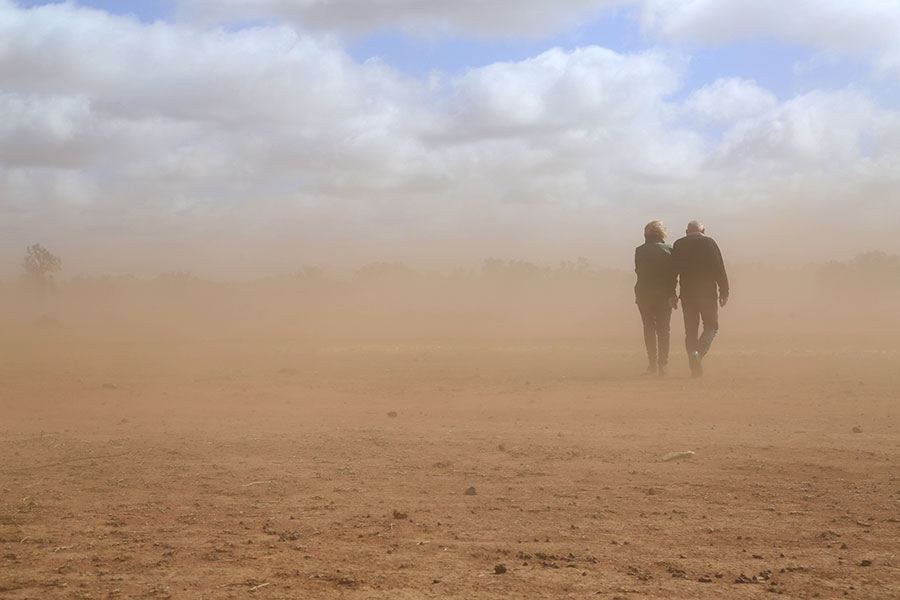


With the world poised in anticipation of solid outcomes from the weekend’s COP26 climate change conference, Australian Red Cross reiterates its call for the most ambitious action to reduce the risks and address the causes and consequences of climate and environmental crises.
The UN summit to be held in Glasgow, including a World Leaders Summit, aims to bring parties together to accelerate action towards the goals of the Paris Agreement and the UN Framework Convention on Climate Change.
Australian Red Cross recognises climate change is a major factor contributing to the ongoing vulnerability of billions of people across the world. The impacts of climate change exacerbate poverty, migration, poor health and increased violence and conflict.
On the current trajectory, by 2050 the number of people requiring humanitarian assistance could double from 108 million to 200 million per year. However, this could be as low as 68 million by 2030 and 10 million if determined climate action is undertaken.
That’s why we again call for a serious scaling up of investment in disaster-risk reduction and in approaches that have proven to work in anticipating extreme events, such as forecast-based financing, so more communities receive help before a disaster strikes.
Similarly, we urge more emphasis on early warning systems that reach vulnerable communities, and new, creative mechanisms for financing the humanitarian response before a disaster strikes.
And we urge greater investment in policies and programs to tackle changing disaster risks and uncertainties, build our capacity to adapt to a changing climate and address the structural causes of poverty and vulnerability.
We are working hard to put our own house in order and decarbonise our own operations.
We’ve signed a global Climate and Environment Charter for Humanitarian Organisations, which commits us to wide-ranging actions. This includes publicly developing targets so we can massively reduce our emissions by 2030, as well as easily achieve net zero by 2050. We are similarly working alongside 32 other large Australian organisations, signing the Climate Leaders Coalition’s Roadmap to 2030 – Shifting to a Low Carbon Future. This charts a course to achieve significant emissions reductions in a responsible and equitable way.
We are actively switching to green energy for our buildings and vehicles, purchasing carbon offsets and measuring our progress as we implement our commitments.
We are uniquely placed to help people in Australia prepare for, respond to, recover from and mitigate against climate-induced disasters.
In 2019-2020 Australian Red Cross responded to 63 emergency events, helping 84,000 people in them. We also helped 313,477 people to be prepared for and recover from disaster. In the same year we raised $227 million for disaster relief and recovery.
Quite apart from the devastating human cost, the economic cost of natural disasters continues to escalate. It’s now estimated natural disasters will cost Australia $73 billion by 2060, under a low emissions scenario. This is significantly higher than the $39 billion by 2050 reported by the Australian Business Roundtable in 2017.
It’s those experiencing most vulnerability paying the greatest cost for climate change. That’s why we add to their voices in calling for ambitious action at all levels of decision-making to reduce risks and address the causes and consequences of the climate and environmental crises.

In the face of a seemingly intractable problem, some advice to help you think, take action, and cope.

A new Red Cross report outlines the human toll and financial costs of doing nothing as natural disasters increase as a result of climate change.

We need to act now to support communities adapt to a changing climate. Every day at Australian Red Cross, we witness the human impacts of extreme weather. In particular, we see the detrimental health and social impacts brought on by more frequent and intense disasters and crises.
Red Cross pays our respects to the Aboriginal and Torres Strait Islander custodians of the country where we work, and to Elders, past, present and emerging.
Learn about our Reconciliation Action Plan and how we can all make reconciliation real.
This website may contain the images, voices or names of people who have passed away.